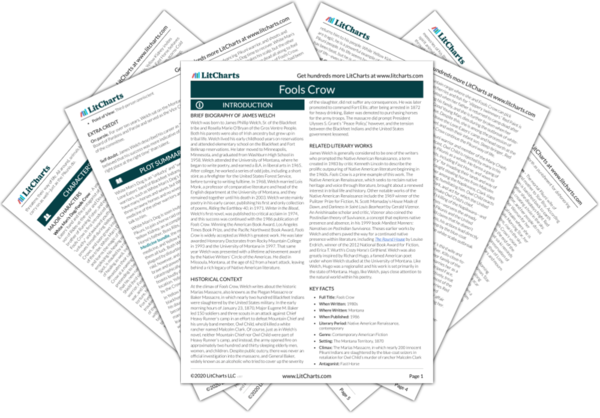LitCharts assigns a color and icon to each theme in Fools Crow, which you can use to track the themes throughout the work.
The Individual vs. the Collective Good
Colonialism and Western Expansion
Dreams, Visions, and Storytelling
Spirituality and the Natural World
